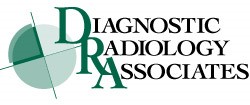CT (COMPUTED TOMOGRAPHY) SCAN
 CT scan, also know as a CAT scan, provides the radiologist with detailed images of the organs and deep parts of the human body. It uses a rotating x-ray device and a sophisticated computer to create an image through the human body, similar to how a slice of bread shows us what the inside of a loaf of bread look like. CT scans of internal organs, bones, soft tissue and blood vessels provide greater clarity and reveal more details than regular x-ray.
CT scans are generally painless, fast and easy. Patients are placed on the CT table which moves slowly through the scanner, which is designed more like a doughnut than a tube. Most claustrophobic patients find the visit very manageable. The total time where the patient is engaged with the scanner itself is about 5 minutes.
Your physician may order the procedure with the use of x-ray dye or x-ray contrast material, which is given through a small IV, into the bloodstream. The technologist will explain the specific requirements for your scan prior to your study.
Patients should expect that they will be required to drink three to four 7ounce cups of a dilute barium liquid in a variety of flavors (mochaccino included!). This process is the longest part of the exam time and on average takes approximately 1 hour prior to the scan. Patients are welcome to come the day before the scheduled exam to pick up the barium liquid and start the drinking process at home.
If this scan is being performed because of an abnormality found on another imaging study, the patient should bring those films and the report with them at the time of their CT scan.
CT scan, also know as a CAT scan, provides the radiologist with detailed images of the organs and deep parts of the human body. It uses a rotating x-ray device and a sophisticated computer to create an image through the human body, similar to how a slice of bread shows us what the inside of a loaf of bread look like. CT scans of internal organs, bones, soft tissue and blood vessels provide greater clarity and reveal more details than regular x-ray.
CT scans are generally painless, fast and easy. Patients are placed on the CT table which moves slowly through the scanner, which is designed more like a doughnut than a tube. Most claustrophobic patients find the visit very manageable. The total time where the patient is engaged with the scanner itself is about 5 minutes.
Your physician may order the procedure with the use of x-ray dye or x-ray contrast material, which is given through a small IV, into the bloodstream. The technologist will explain the specific requirements for your scan prior to your study.
Patients should expect that they will be required to drink three to four 7ounce cups of a dilute barium liquid in a variety of flavors (mochaccino included!). This process is the longest part of the exam time and on average takes approximately 1 hour prior to the scan. Patients are welcome to come the day before the scheduled exam to pick up the barium liquid and start the drinking process at home.
If this scan is being performed because of an abnormality found on another imaging study, the patient should bring those films and the report with them at the time of their CT scan. CT Preparations:
Abdomen/Pelvis:
- No food or drink for 4 hours prior to exam time. Medications may be taken with a small amount of liquid up to exam time. Patients who are diabetic should call the CT Department if they need to eat prior to the study due to insulin, etc.
- Patients receiving IV contrast who are diabetic and are on Glucophage/Metformin should not take it on the day of the exam and should restart taking it 48 hours after the exam.
- Patients should wear comfortable, loose fitting clothing and will be required to remove any articles of clothing or jewelry, which may interfere with the CT scan such as belts, pocket change or underwire bras.
Head/Neck/Chest
- No food or drink 2 hours prior to the exam. Medications may be taken with a small amount of liquid up to exam time. Patients receiving IV contrast who are diabetic should call the CT Department if they need to eat prior to the study due to insulin, etc.
- Patients receiving IV contrast who are diabetic and on Glucophage/Metforin should not take it on the day of the exam and should restart their medication 48 hours following the exam.
- Patients will be required to remove clothing or jewelry, which may interfere with the CT scan such as earrings, dentures, necklace, glasses or hairpins.
Spine/Extremity
- Patients will be required to remove any clothing or jewelry which can interfere with the CT scan such as belts, watches, or bras.
Precautions for all CT Exams
- Patients should inform the technologist if they have a history of allergies (especially to previous contrast injection, medications, or shellfish), asthma, diabetes, kidney problems, thyroid problems, or heart condition.
- Please inform the technologist if you are or may be pregnant.
- If IV contrast is utilized and you are over age 60 or older bloodwork (BUN & Creatinine) is necessary prior to exam.
